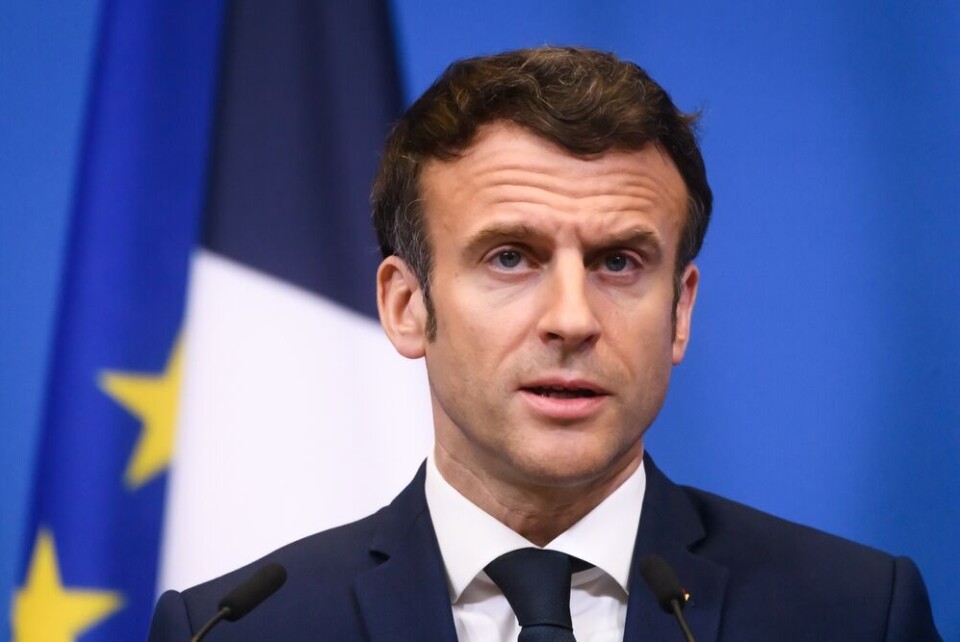-
La Voie Bleue: European Cycle Route of the Year is in France
700km bike path linking Luxembourg and Lyon has been crowned winner of the 2026 title
-
Before and after: Garonne river floods in south-west France
Satellite images show extent of flooding from back-to-back storms in February
-
Home insurance increases expected in France after floods
Compensation costs for the recent storms and flooding across the west and south-west is estimated to be in the billions of euros
France must significantly reduce immigration, says Macron
There must be better protection with non-EU borders, said the president in an interview published yesterday (August 23)

France must significantly reduce immigration, President Emmanuel Macron has said, although he conceded that the country is not currently ‘overwhelmed’ due to the issue.
He said the starting point was to work on reducing illegal immigration.
In a new interview, Mr Macron said that reducing immigration would need to be done in parallel with work to encourage immigrants to integrate well into French society, and to respect the authority of the French Republic - including at school and in the workplace.
The interview marks the government’s return to parliament following its summer recess. Prime Minister Elisabeth Borne also took part in an interview recently for the same reason.
Read more: Six key points to note from French Prime Minister’s recent interview
He said: “Are we overwhelmed by immigration? No. It’s false to say that. Having said that, the situation that we’re in now is not sustainable and we must significantly reduce immigration, starting with illegal immigration. We have a duty to get results.”
Mr Macron outlined five ways that the government is aiming to achieve these goals.
Better protect non-EU borders
The president said that the country needs to “better protect our exterior borders”, meaning those to countries outside of the EU.
“Let’s remember,” he said, “that France is not a country of first entry to Europe, but mainly a secondary immigration country for people who have come through another European Union nation.”
Improve the asylum-seeker processing
He said that France needs to “be more effective in its application of the right to asylum, which is misused by [people] trafficking networks”.
Improving this process is “at the heart of the legal bill being prepared by the government” on the issue, he said.
Parallel work in schools and workplaces
The president said that the country also needed “to take action through schools…and the economy…at the same time as [reducing] immigration”.
He suggested that low levels of employment among immigrants was a major reason why many fail to integrate well into French society, and said that the country needed to work to improve this.
He said: “When you have 10% unemployment for years, [immigrants] don't integrate.”
Immigration bill debate in parliament
Mr Macron said that Interior Minister Gérald Darmanin would be presenting the immigration bill this winter in the Senate, and acknowledged that the debate of the bill has been postponed several times.
He said: "Together with the Prime Minister, Elisabeth Borne, we are going to appoint the Interior Minister as soon as the summer recess ends, to start again with the government's plan.”
He said that the government would “discuss it with all the opposition forces that are moving in the same direction and build the most effective plan possible”.
Mr Darmanin will then “take the bill from the Senate to the Assembly [MPs] to get results”.
Possible use of article 49.3
So far, parliament has struggled to achieve a majority on this bill and the subject in general. However, the president said he “thinks [and] hopes to be able to avoid” using the controversial article 49.3 to force the bill through when the time comes.
The article allows the government to force certain bills through parliament even without a majority vote or approval from the chamber. However, this is controversial, and risks - in the event of strong opposition - the collapse of the government.
Its last high-profile use was in the case of the pension reforms, which saw Ms Borne narrowly escape with her job after two close votes of no confidence.
Read more: Explainer: what is France’s article 49.3 and why is it in the news?
However, Mr Macron said that he would consider using the article if necessary. He said: “I am in favour of using the instruments of the Constitution. We need results, so if such a text were to be blocked, we must do everything we can.”
Previous articles
Six key points to note from French Prime Minister’s recent interview
Macron wants (some) pupils back at school a week earlier in France
Five takeaways from Macron interview to mark a year since re-election
























